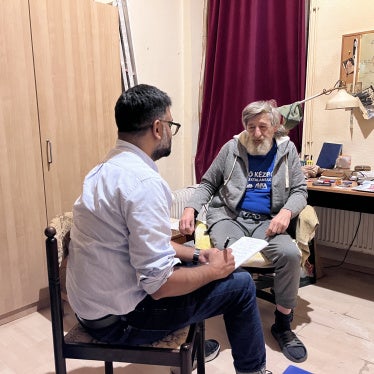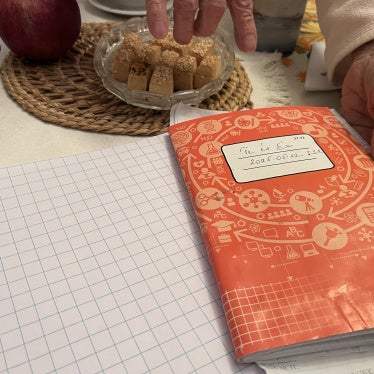February 10, 2017
Extractive Industries Transparency Initiative
International Secretariat
Ruseløkkveien 26, 0251
Oslo, Norway
For distribution to Extractive Industries Transparency Initiative Board Members
Dear Board Members,
We, the undersigned organizations, are writing in advance of the Extractive Industries Transparency Initiative's (EITI) Board meeting on March 8-9, where the board will review Azerbaijan's compliance with the corrective actions in relation to civil society outlined at the EITI October 2016 Board meeting. The government of Azerbaijan has not implemented the board’s recommendations and continues to show serious disregard for the principles on civil society engagement enshrined in the EITI Standard and the civil society protocol. For these reasons, Azerbaijan is not compliant with the EITI Standard on civil society engagement, and we urge you to suspend Azerbaijan from EITI.
As you are aware, in October 2016, the EITI Board gave Azerbaijan four months until the next EITI Board meeting to address a number of legislative and operational obstacles to civil society engagement in the Initiative. Specifically, corrective actions set forth by the Board oblige Azerbaijan to eliminate the requirements for:
- Non-governmental organizations (NGOs) to obtain an extract [registration certificate] every two years confirming their registration, which serves as the basis for NGOs’ operation;
- Non-governmental organizations to register grants with the Ministry of Justice; and
- foreign donors to register individual grants with the authorities and obtain an opinion on the purposefulness (expediency) of the grant.
According to the Board's decision “failure to take corrective actions to the satisfaction of the Board will result in suspension in accordance with the EITI Standard.”
Over the past few months, the Azerbaijani government has introduced some changes to regulations governing the work of NGOs. However, the changes are limited to only certain rules and do not address the fundamental legislative obstacles identified by the EITI Board itself as needing to be amended. The changes in practice offer limited prospects for fundamentally improving the operating environment for independent civil society groups.
In January 2017, the Cabinet of Ministers adopted two decisions introducing changes to the Rules for Registration of Grant Agreements (Decisions) and the Rules for Foreign Donors’ Acquisition of the Right to Give Grants on the Territory of Azerbaijan Republic. The Cabinet of Ministers’ recent decisions follow the October 2016 Presidential Decree on Simplification of Registration of Foreign Grants in Azerbaijan, introduced shortly before the October EITI Board meeting. The decree called for the application of a “one stop shop” approach for foreign grants registration.
The new regulations simplify some procedures for registration of foreign grants and reduce the number of required documents. The new rules merge donor registration and NGO grant registration into one process overseen by the Ministry of Justice. The changes also eliminate the prohibition on NGOs signing grant contracts with a foreign donor who has not obtained the right to provide grants in Azerbaijan. Also, a foreign donor or an NGO grant recipient are no longer required to secure prior approval for grant registration from the Ministry of Finance, including an opinion on the financial expediency of the grant project. Now, the Ministry of Justice must seek a Ministry of Finance opinion on the grant project, following an NGO request to the Ministry of Justice for grant registration after a donor and NGO have signed grant agreement.
These regulatory changes simplify certain procedural aspects pertaining to registration of foreign grants. However, they do not address the legal requirement for NGOs to register grants, do not eliminate the requirement for the Ministry of Finance to provide an opinion on the expediency of each grant from a foreign donor, and the multi-step complex registration procedure for grants and foreign donors remains in place.
Most importantly, the regulatory changes do not eliminate the discretion of the authorities to arbitrarily deny grant registration. Nor do the regulatory changes address the deeply entrenched legal barriers to effective functioning of NGOs.
The Law on Grants and the Law on State Registration and State Register of Legal Entities, which are the sources of the three key legislative issues identified by the EITI Board in the corrective actions, remain unchanged. As a result:
- NGOs still need to register all changes, including minor changes, to their founding documents and obtain an extract [registration certificate] every two years (non-fulfillment of EITI Board requirement (a));
- NGOs must register grants with the Ministry of Justice (non-fulfillment of EITI board requirement (b)); and
- Foreign donors are required to register every grant individually and an opinion on the purposefulness (expediency) of the grant remains a requirement (non-fulfillment of EITI board requirement (c)).
Notwithstanding criticism of Azerbaijan’s legislation restricting NGOs ability to work and secure funding, from numerous authoritative bodies including various UN agencies, several parts of the Council of Europe, the Open Government Partnership and others, as well as ample opportunities to reform legislation paralysing the work of independent civil society, the government of Azerbaijan chooses not to honour its obligations under the EITI Standard and international human rights law and maintains the restrictive legislation.
Even after the EITI Board’s downgrading of Azerbaijan's status in EITI in April 2015, and the requirement for Azerbaijan to implement a number of corrective actions to ensure an enabling environment for civil society to meaningfully participate in EITI, the authorities continued to enact regulations further stifling independent civil society.
Moreover, in addition to this restrictive legislative and regulatory environment, the Azerbaijani authorities continue to harass activists who advocate for good governance, preventing civil society from participating in public debate and decision-making, including with regard to the extractive industries. Currently, two members of the EITI Azerbaijan Civil Society Coalition are imprisoned, and several other members have been forced to flee the country, fearing politically motivated prosecutions.
Most recently, on January 25, 2017 an Azerbaijani court sentenced Fuad Gahramanli, a member of the EITI Azerbaijan Civil Society Coalition, to 10 years in prison on false charges of inciting the public to disobey the government, making appeals against the government, and incitement of national, racial, social, or religious hostility, in retaliation for his Facebook posts criticizing government policies. Amnesty International considers Gahramanli to be a prisoner of conscience, prosecuted in retaliation for peacefully exercising his right to freedom of expression. Another member of the EITI Azerbaijan Civil Society Coalition, Asif Yusifli, is serving a six-year prison sentence, following his conviction in 2015, on trumped-up fraud and forgery charges.
The authorities refuse to issue Oktay Gulaliyev, an active member of the EITI coalition, an international passport, effectively placing him under a travel ban, despite the fact that the authorities dropped spurious criminal charges against him a few days before the October 2016 EITI board meeting. The authorities have refused to register Gulaliyev’s human rights NGO, Public Association for Democratic Reform, despite his repeated attempts to register since 1999. In October 2016, the Ministry of Justice, without consulting Gulaliyev, registered the organization under a different name, the Public Union on Support to Development, with the completely different mandate of financial analysis and reporting. Gulaliyev officially complained to the Ministry of Justice about these changes that he did not authorize, but received no response.
In late October 2016, the authorities claimed they had registered 17 other organizations participating in the EITI Azerbaijan NGO Coalition. However, there is no information publicly available about these registered organizations. The authorities have not responded to numerous requests by EITI coalition members for information about the identity of these groups. The Ministry of Justice denies registration to many NGOs, including at least 30 independent NGOs members of the EITI Azerbaijan NGO Coalition.
We applaud the EITI Board’s commitment to fostering an enabling legal and operational environment for civil society in Azerbaijan, and consider EITI Board Chair Fredrik Reinfeldt’s recent visit to Baku an important signal of the Board’s commitments to these issues.
As described above, Azerbaijan has once again failed to implement the corrective actions outlined by the EITI Board and amend the legislative and operational barriers to the work of NGOs. The restrictive legislative framework negatively impacts the ability of groups in the EITI coalition and many other organizations to function. The superficial changes in the rules of registration of foreign grants fail to address the fundamental issues that led to downgrading Azerbaijan’s status in EITI in 2015 and the specific, non-negotiable corrective actions set by the EITI Board in October 2016.
We therefore call on the members of the EITI Board to abide by EITI commitments to civil society and the pledge set forth at the October 2016 EITI Board meeting, and suspend Azerbaijan's membership for its failure to implement the corrective actions established by the Board, and for its continued intentional arbitrary interference in the activities of independent non-governmental organizations.
By overlooking Azerbaijan’s failure to comply with a very clear set of corrective actions established by the Board, the credibility of the EITI validation process, particularly with regard to the EITI’s commitment to civil society participation within the initiative, would be severely undermined.
We thank you for your attention to this crucial matter.
Sincerely,
Article 19
CEE Bankwatch Network
Civil Rights Defenders
Counter Balance
Crude Accountability
Freedom House
Freedom Now
Front Line Defenders
Helsinki Foundation for Human Rights
Human Rights First
Human Rights House Foundation
Human Rights Watch
Institute for Reporters’ Freedom and Safety
International Media Support
International Partnership for Human Rights
NESEHNUTI - Independent Social Ecological Movement
Netherlands Helsinki Commitee
Norwegian Helsinki Committee
PEN America
PEN International
Reporters Without Borders (RSF)
World Organisation Against Torture (OMCT)








